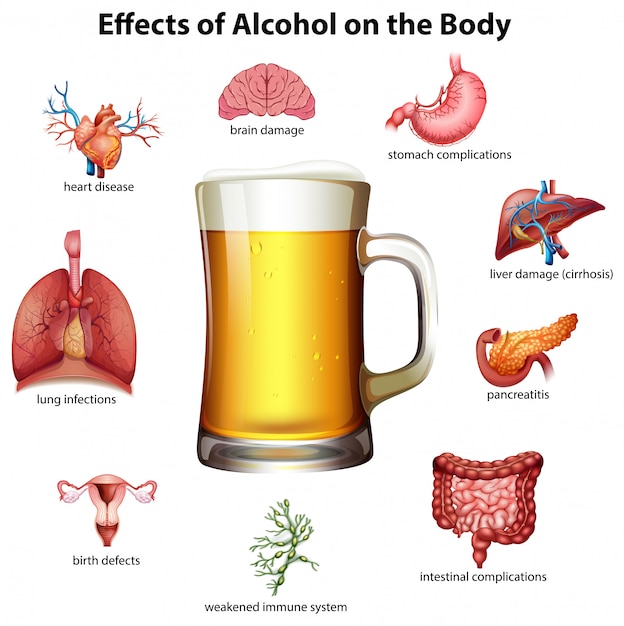
Consuming alcohol can significantly affect your health, as well as your overall well-being and safety. Alcohol is the third-leading preventable cause of death amongst the excessive consumers.
Regarding the harmful effects of alcohol on the liver, here are some risk factors associated with intake of alcohol:
- Fatty liver: Alcohol can cause fat to accumulate in liver cells, leading to fatty liver disease.
- Alcoholic hepatitis: Alcohol can cause inflammation and damage to liver cells, leading to scarring and cirrhosis.
- Liver fibrosis: Repeated alcohol consumption can lead to scarring and fibrosis, which can progress to cirrhosis.

- Liver cancer: Heavy and long-term alcohol consumption can increase the risk of developing liver cancer.
- Liver failure: Chronic alcohol consumption can lead to liver failure, which can be life-threatening.
- Portal hypertension: Alcohol can cause blood pressure in the portal vein to increase, leading to portal hypertension.
- Nutritional deficiencies: Alcohol can interfere with the body’s ability to absorb nutrients, leading to deficiencies in vitamins and minerals.
- Liver disease progression: Alcohol can accelerate the progression of liver disease
It’s important to note that these risks are associated with excessive and long-term alcohol consumption. Moderate alcohol consumption, defined as up to one drink per day for women and up to two drinks per day for men, is generally considered safe for most adults. However, it’s always a good idea to consult with a healthcare professional for personalized advice.
Visited 4 times, 1 visit(s) today


